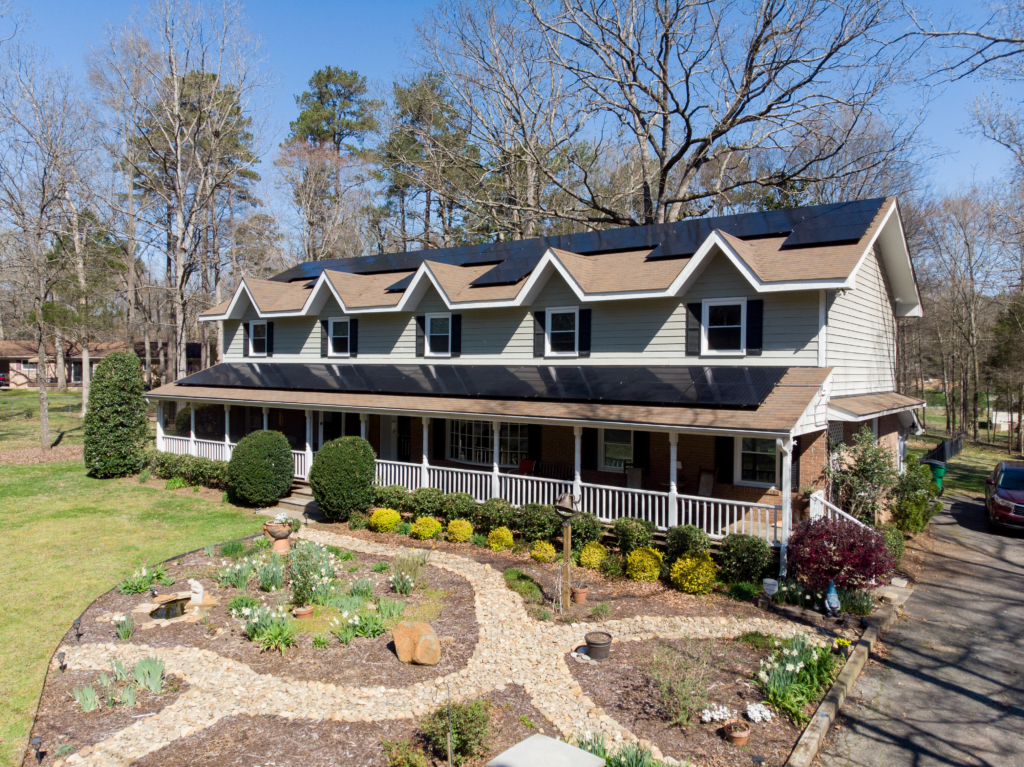Jim’s Solar Success Story
Jim’s Solar Success Story
![]() Jim’s solar success story is one of our favorites, and he doesn’t shy away from opportunities to speak out as a solar customer living in the heart of Charlotte, NC. His beautiful home features a solar array over the garage, with modules manufactured by an American-headquartered company and rated as among the most efficient available.
Jim’s solar success story is one of our favorites, and he doesn’t shy away from opportunities to speak out as a solar customer living in the heart of Charlotte, NC. His beautiful home features a solar array over the garage, with modules manufactured by an American-headquartered company and rated as among the most efficient available.
He’s vocal about what a great deal solar is for homeowners and is in favor of any federal or state policies that make solar even more affordable for residents and business owners. Now that it’s been a few years since his solar was installed, he’s proud to be able to recommend solar to others based on the great results he’s enjoyed and the feeling of taking control of his home’s energy.
Want to See More Like Jim’s Solar Success Story?
Learn more about solar electric systems that use solar panels to provide energy for your whole home.

Frequently Asked Questions About Solar for Your Home:
How exactly does going solar and a solar system itself work?
How many solar panels do I need for my home?
Roof-size/available space: When we look at the size of your roof and the space available, we gather data that tell us the maximum number of solar panels your home or site can hold and we even consider shading. We use a software “Suneye” which takes a 360 picture of your roof and we use this photo to determine if your home is a good candidate for solar.
Energy Usage: When we determine energy usage we look at your past electrical bills from over the course of a year to make sure your system isn’t too big or too small.
Your Budget: We take your budget seriously and most importantly, we want you to be satisfied with our services. We take your feedback on how much you want to spend so that we can size your system appropriately.
What is solar net-metering?
Does Duke Energy offer net-metering?
Curious about the cost of a home solar system?
Ready to Own Your Own Energy?
Speak to Us Today!
